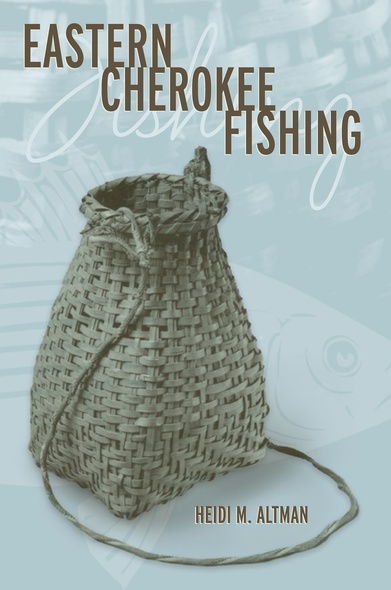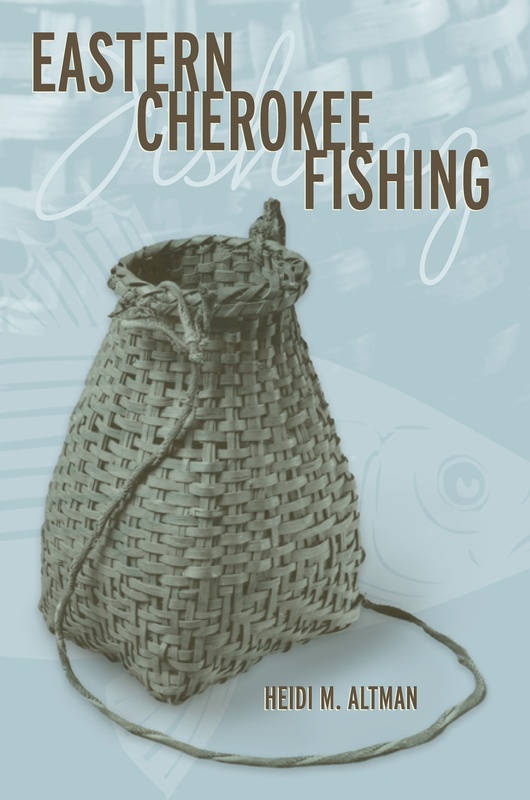Eastern Cherokee Fishing
University of Alabama Press
Cherokee identity as revealed in fishing methods and materials.
In Eastern Cherokee Fishing, life histories, folktales, and reminiscences about fish gathered from interviews with Cherokee and non-Cherokee people provide a clear and personal picture of the changes in the Qualla Boundary (Eastern Band of the) Cherokee in the last 75 years. Coupled with documentary research, these ethnographic histories illuminate changes in the language, culture, and environment (particularly, aquatic resources) since contact with Europeans and examine the role these changes have played in the traditions and lives of the contemporary Cherokees.
Interviewees include a great range of informants, from native speakers of Cherokee with extensive knowledge of traditional fishing methods to Euro-American English speakers whose families have lived in North Carolina for many generations and know about contemporary fishing practices in the area. The topic of fishing thus offers perspective on the Cherokee language, the vigor of the Cherokee system of native knowledge, and the history of the relationship between Cherokee people and the local environment. Heidi Altman also examines the role of fishing as a tourist enterprise and how fishing practices affect tribal waters.
Altman packs a great deal of ethnographic and analytic material into this small volume on fishing among the Eastern Cherokee of western North Carolina. She demonstrates well her contention that Cherokee fishing links disparate areas of culture and daily life. Language is especially important. Studying Cherokee fishing language leads to understanding the history and economy of Cherokee fishing. Fishing is, in turn, a key to Cherokee language as well as to other aspects of culture and to Cherokee environmental understanding. Fishing can be used to explore ecological history, subsistence, worldview, identity, and tourism. Altman shows how fishing moved from the subsistence economy into the cash economy of tourism. In addition to discussions of history, language, economy, and ethnoecology of fishing, there are chapters on material technology and identity. Altman argues that fishing is central to Cherokee identity, and that use of fishing language maintains ethnic boundaries. The author's approach is particular and historical. Her study's single comparative aspect is the comparison of English and Cherokee language about fish. The book is clear and accessible. Recommended.'
—CHOICE
‘Classic anthropology for the modern era.’-- J. Anthony Paredes, series editor
“Cherokee Fishing delivers a unique volume of American Indian subsistence for the anthropological literature. A delightful presentation of real time ethnographic information carries the volume forward in a captivating manner to its successful conclusion.”-- James E. Bird, National Park Service
Heidi M. Altman is Assistant Professor of Anthropology at Georgia Southern University.





